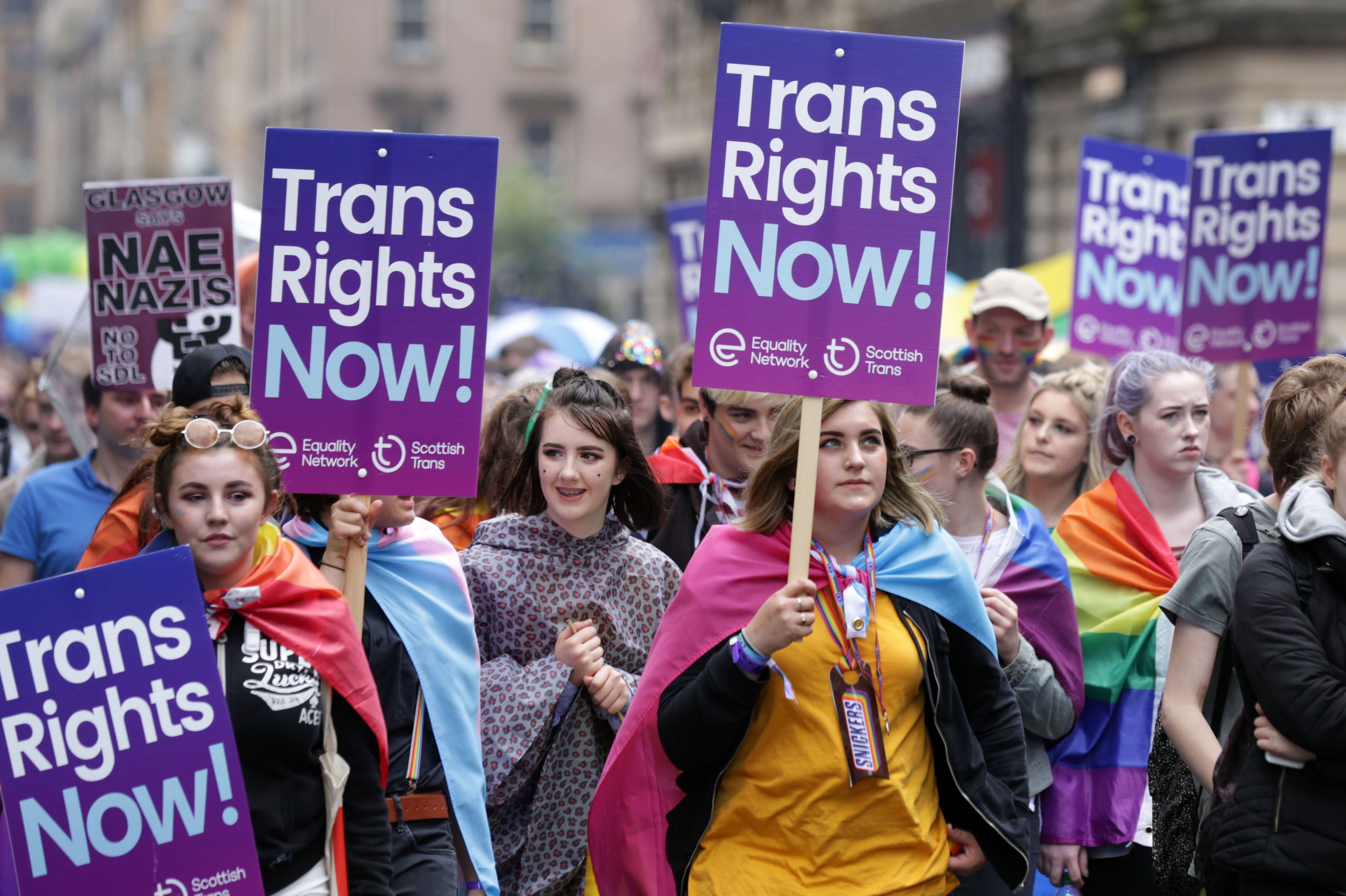Most Scots support GRA reform but are not heavily engaged in debate, poll finds
Savanta ComRes found 57% of people in Scotland back the idea of making the process to gain a gender recognition certificate simpler.

Your support helps us to tell the story
From reproductive rights to climate change to Big Tech, The Independent is on the ground when the story is developing. Whether it's investigating the financials of Elon Musk's pro-Trump PAC or producing our latest documentary, 'The A Word', which shines a light on the American women fighting for reproductive rights, we know how important it is to parse out the facts from the messaging.
At such a critical moment in US history, we need reporters on the ground. Your donation allows us to keep sending journalists to speak to both sides of the story.
The Independent is trusted by Americans across the entire political spectrum. And unlike many other quality news outlets, we choose not to lock Americans out of our reporting and analysis with paywalls. We believe quality journalism should be available to everyone, paid for by those who can afford it.
Your support makes all the difference.Most people in Scotland support reform of the Gender Recognition Act but are not heavily involved in the heated debate around the issue, a new poll suggests.
A study by Savanta ComRes for the BBC found 57% of 2,038 respondents to the poll support the idea of making it easier to acquire a gender recognition certificate for people who identify as transgender.
Just one in five people oppose the idea, the poll shows, while 18% said they have no opinion and 5% do not know.
A heated debate has formed – mainly on social media – around the reforms in recent years, with some groups fearing change could give rise to easier access for predators to women’s only spaces.
But the poll shows just 5% of people said they follow the discourse “very closely”, with 31% saying they follow it “quite closely”.
In total, 67% of those asked said they do not follow the debate closely.
The Scottish Government said, in its deal with the Scottish Greens, it would look to pass a Bill that would simplify gender identification rules for trans individuals within the first year of the new parliamentary term.
However, the poll went on to show respondents are less accepting of specific proposals.
Support for allowing trans people to self-identify as a gender different to that of their birth – without the need for a medical diagnosis – sat at 40%, according to the poll, while opposition to the idea was close behind at 38%.
Just 37% support the reduction of time applicants must prove they have lived in their self-identified gender to six months from two years, while 44% oppose it.
Quite a lot of us are still not really very sure about where we stand on this issue
A majority of people (53%) also oppose the possibility of reducing the age a person can apply from 18 to 16, while 31% support that proposal.
The Scottish Government has yet to reveal the provisions it will seek to introduce, with Ms Sturgeon saying only that the Bill will be introduced “soon”.
Polling expert Professor Sir John Curtice said: “There are two obvious characteristics of us as a society on transgender men and women.
“The first is that we are pretty evenly divided on many of the arguments we are having, such as whether to make it easier for them to register legally their new gender and whether or not they should be able to use toilets of the gender to which they identify.
“The second is that quite a lot of us are still not really very sure about where we stand on this issue.
“On many of the questions in this poll we have got between a fifth and a third of people saying they are frankly not sure, don’t know, neither agree nor disagree with either option.
“In contrast to the online debate, which is undoubtedly deeply polarised, the general public are not particularly sure and only about a third are following the issue closely.”